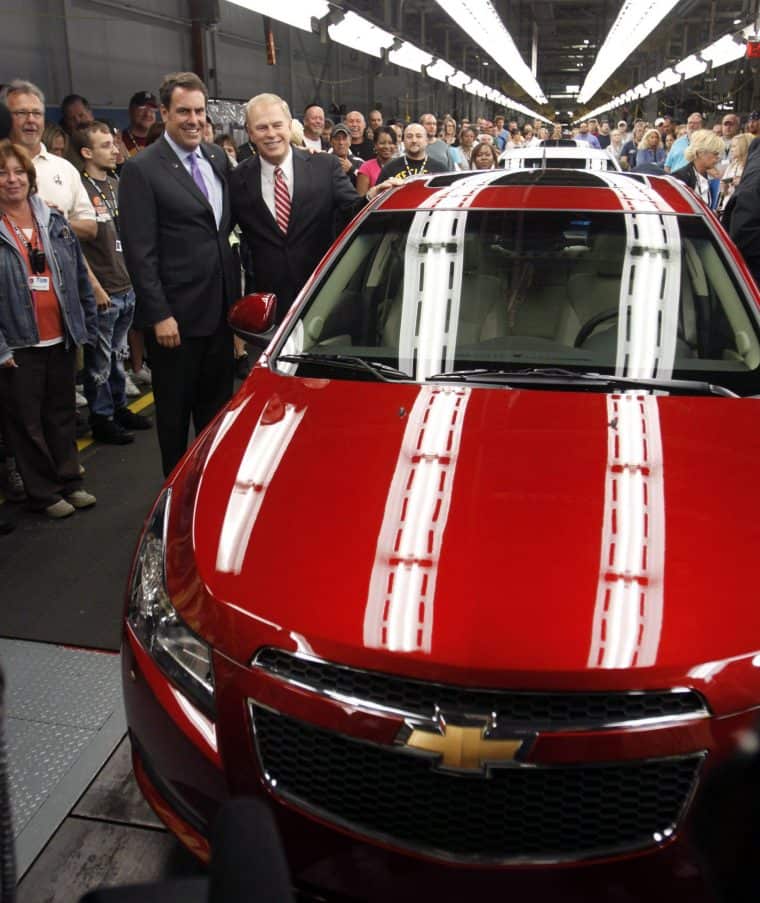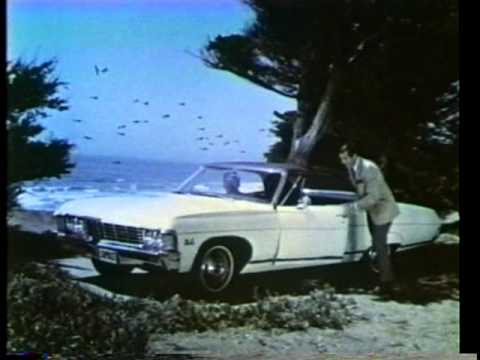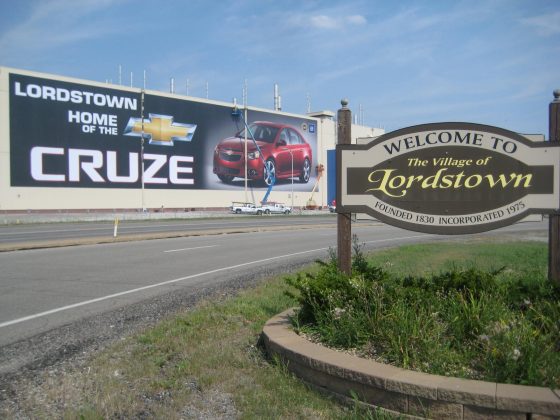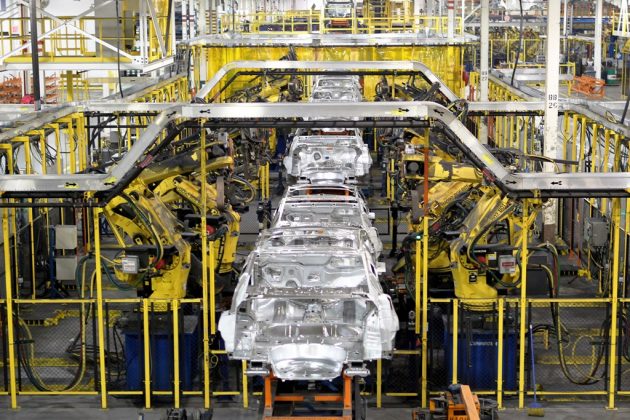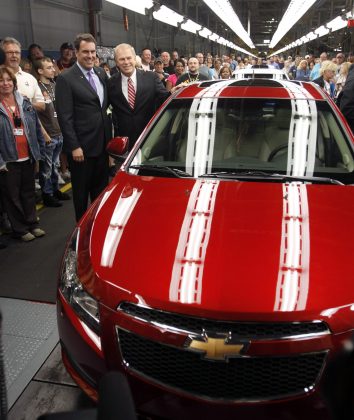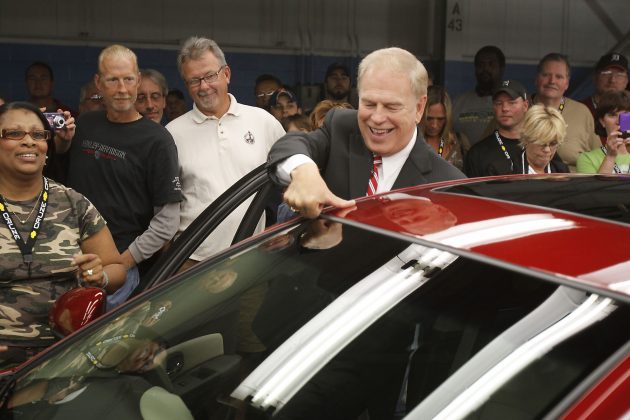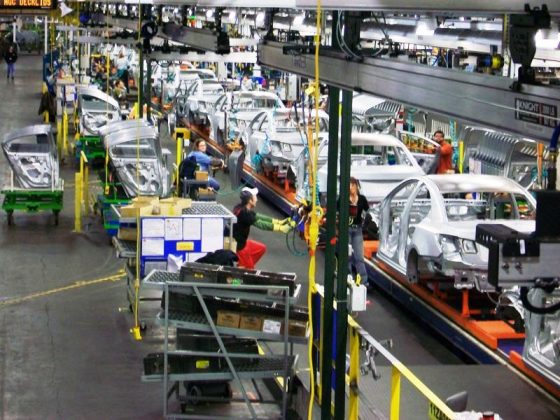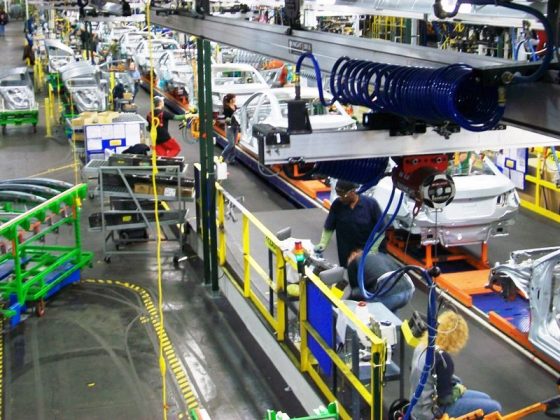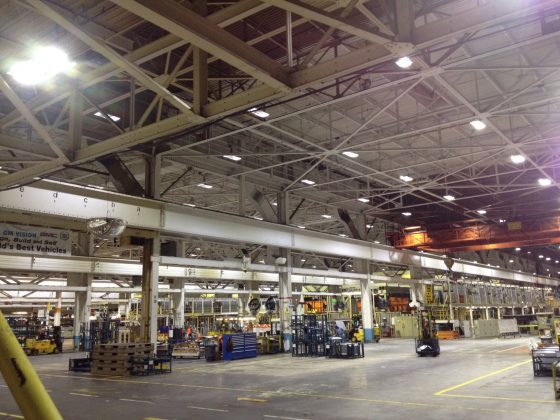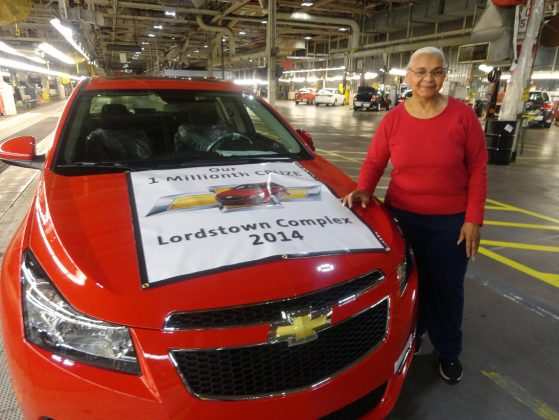Lordstown’s future hinges on March announcement | If Lordstown isn’t allotted another vehicle, the impacts of a permanent shutdown will be widely felt, experts say.
In September 1964 workers descended on a cornfield in rural Lordstown to break ground on what would become one of the most modern assembly plants operated by General Motors. In April 1966 the plant’s first vehicle, a Chevrolet Impala sports sedan, rolled off the assembly line at GM Lordstown. If nothing else changes, that 52-year history will come to an end in March when production is halted on the Chevrolet Cruze.
GM announced in November that it plans on eliminating six car models and nearly 15,000 workers. Five plants in North America – Lordstown, Detroit-Hamtramck and Warren Transmission in Michigan, Oshawa Assembly in Ontario and Baltimore Operations in Maryland will be idled.
If Lordstown isn’t allotted another vehicle, the impacts of a permanent shutdown will be widely felt, experts say. As late as 2016, the plant employed 4,500 workers on three shifts. GM halted the third shift in November 2016 and the second shift in June 2018.
Dr. Tod Porter, chairman of YSU’s Department of Economics, estimates that for every manufacturing job lost, three other jobs are also lost. “Three is probably a reasonable multiplier effect,” he says. “The way the multiplier effect works is you have people who are laid off, they spend less money and that ends up generating less revenue for local businesses and decreases employment. That practice takes time.”
The impact of the loss of the first shift has most likely already worked its way through the local economy, Porter says. However, the loss of the second shift has likely not been fully felt. “When you consider jobs that were cut in June, you’re looking at somewhere in the neighborhood of 8,000 to 9,000 jobs that could be lost,” he explains. Closing GM Lordstown could increase local unemployment numbers by 4 percent to 5 percent, Porter estimates.
Local suppliers and businesses that service the plant are particularly vulnerable. Source Providers, Inc., a warehouse and logistics firm in Austintown that provides services to Lordstown, employed nearly 600 workers only a few years ago. Their workforce had been reduced to 180 after the elimination of two shifts at GM Lordstown. The subsidiary of Comprehensive Logistics Co. announced it would close March 8 in response to the Lordstown decision.
Magna’s Lordstown Seating Systems of Warren, maker of seats for the Cruze, reported in April 2018 that it would lay off 83 employees. Magna International Inc., a Canadian automotive supplier, announced on Dec. 29 it would lay off a further 120 employees. In a press release, the company stated that “layoffs should be considered permanent” if the Lordstown plant isn’t allocated another product.
The Village of Lordstown expects to lose around a million dollars in income tax revenues annually when the plant is idled in March. The city of Warren expects to lose approximately $161,000 or less in income tax revenue, according to the auditor’s office. The biggest economic impact for the city of Warren will come from the loss of water revenue from the GM Lordstown plant, says Franco Lucarelli, director of the water department.
“GM’s water bill for 2017 was around $500,000,” he says. “Their bill for 2018 is going to be a little higher, probably between $550,000 and $600,000.” When all three shifts last operated in 2016, the plant’s bill totaled around $700,000. “Those types of consumers are few and far between,” Lucarelli says. “No other industrial consumer comes close to using that amount of water.”
There’s a possibility that the Lordstown Energy Center, which began commercial operations in October, could make up for some lost revenue, Lucarelli says. Discussions are ongoing to determine the viability of that prospect. “Right now it’s a little premature, because we’ve just started the discussions.”
GM Lordstown’s closure would be only the latest chapter in a very difficult two decades for the Mahoning Valley and Trumbull County in particular. There’s essentially been no employment growth in the area since 1998, according to Dr. Porter. According to reporting by Your Voice Ohio, a collaboration of news organizations from across the state, Trumbull County has lost nearly 40 percent of its payroll or $1.7 billion since 2000.
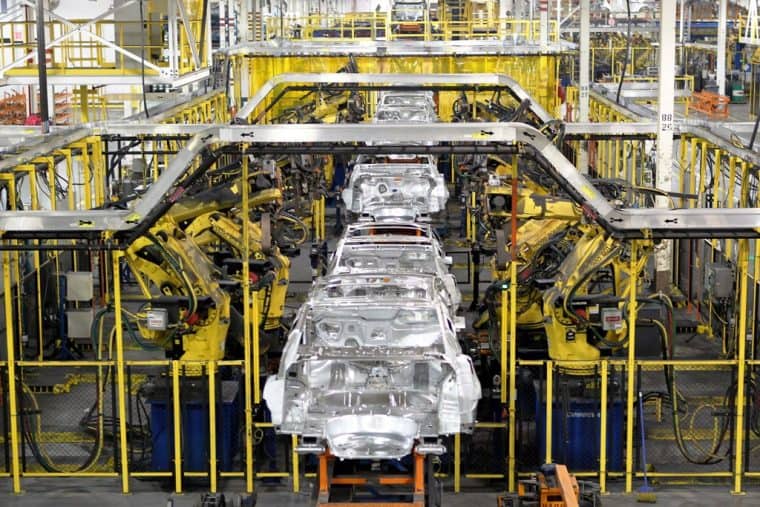
In particular, the Great Recession hammered the county and the Youngstown-Warren-Boardman metro area, especially the first three years after the recession began, says Dr. John Russo, retired director of YSU’s Center for Working-Class Studies. “The 22,000 jobs lost in that three-year period is more than any three-year period during the steel crisis.”
Russo says it’s possible that GM might introduce a new product to the Lordstown plant, but a decision wouldn’t be likely until after the 2019 labor negotiations with the United Auto Workers. “They won’t do those investments until they’ve negotiated new contracts, so you can expect people who are working in these plants to see another tier of wages – in order to get a plant back.” Under this model, pension cuts for retirees are also possible, he says.
Referring to the upcoming 2019 contract talks with the UAW, GM Spokesman Patrick Morrissey says, “The future of the [plants] is a matter of negotiations.” This leaves open the possibility that perhaps one of the three plants in America scheduled to close might be allocated another product, CNBC reported in late December.
David Green, president of UAW Local 1112, sees the move as part of a strategy to shift investment outside of the country. “The taxpayers helped General Motors get out of bankruptcy. They’re idling plants in North America, excluding Mexico. They have plants in Mexico, and none of them are impacted by consumer demand – and they’re building compact cars down there too.”
In December, Elon Musk, CEO of Tesla, Inc., told “60 Minutes” that the company might be willing to buy an idle plant from GM. Tesla already operates a plant in Fremont, Calif., that was once home to a joint venture between GM and Toyota. After Gov. Kasich tweeted “call me” in response to the interview, Musk replied that he’d “consider” looking at the plant if GM permanently shuttered it.
Green says that workers are committed to keeping the plant under GM management. “Tesla, I don’t know what they’re thinking. Our goal here is to get GM to reinvest in this community that they’ve been part of for 52 years.”
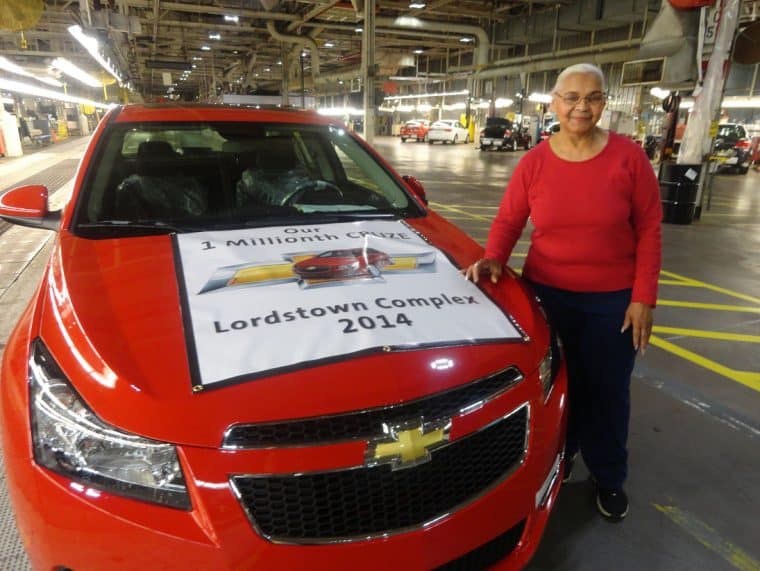
In November, the UAW and a coalition of civic and civic partners launched “Drive It Home,” a campaign designed to help convince GM to continue to invest in the Lordstown plant. The campaign will continue in the upcoming weeks, Green says. “In January, I want to travel throughout the state and talk to different communities that have parts suppliers located in them.”
The impact of GM Lordstown closing will be felt in other parts of the state, but economists disagree about how many jobs will be affected. Susan Helper, economist and professor at the Weatherhead School of Management at Case Western Reserve University, told the Plain Dealer in December that the impact on purchasing power will be one of the most important considerations if GM Lordstown isn’t allocated another product. “The story is not so much ripple effects in unemployment, it’s what does the economy look like in the future in terms of purchasing power for ordinary people. And what happens to innovation loss?”
Since the day GM first made their announcement, local and state politicians have worked to influence the company to reinvest in Lordstown. U.S. Rep. Tim Ryan (D-13) wrote a letter to President Trump on Dec. 3, asking for “decisive action.” President Trump called GM’s decision to idle the plants “nasty.” But during a Dec.13 interview on Fox News, the president said, “It doesn’t really matter because Ohio is under my leadership from a national standpoint, Ohio’s going to replace those jobs like in two minutes.”
U.S. Sens. Sherrod Brown (D-OH) and Rob Portman (R-OH) met with GM CEO Mary Barra to get answers about the Lordstown plant’s future in early December. After the meeting, the senators sent a follow-up letter to the company regarding the future of the plant. “While we asked GM to provide clarity to the Lordstown community, the company chose to sidestep our questions instead,” the senators said in a joint statement on Dec. 21.
James Dignan, president & CEO of the Youngstown/Warren Regional Chamber, was surprised to hear about GM’s announcement, considering the company had made a commitment to continue production of the Cruz through 2021, he says. However, within days of the announcement, the Chamber became involved in an initiative with the Mahoning Valley Economic Development Corp., Eastgate Regional Council of Governments and the Western Reserve Port Authority to obtain grant monies for workforce retraining initiatives and to provide other assistance to affected workers.
The Valley’s economy still has a manufacturing orientation, but smaller employers are increasingly the backbone of the workforce now, Dignan says. “We have very few large-scale employers like GM today. Your average employer now that’s working in the industrial production-manufacturing space has less than 25 employees.”
Manufacturing is not disappearing locally, he says, but it’s rapidly changing “Our production numbers are through the roof, but the number of employees it takes to meet those production numbers continues to drop. We still have a core strength in manufacturing here, it just looks and feel different.”
Metro Monthly is a local news and events magazine based in Youngstown, Ohio. Stay connected with news, features and essential Valley events. We circulate throughout the Mahoning Valley (and beyond) with print, online and flipbook editions. We offer print and website advertising. Office: 330-259-0435.
© 2019 Metro Monthly. All rights reserved.


